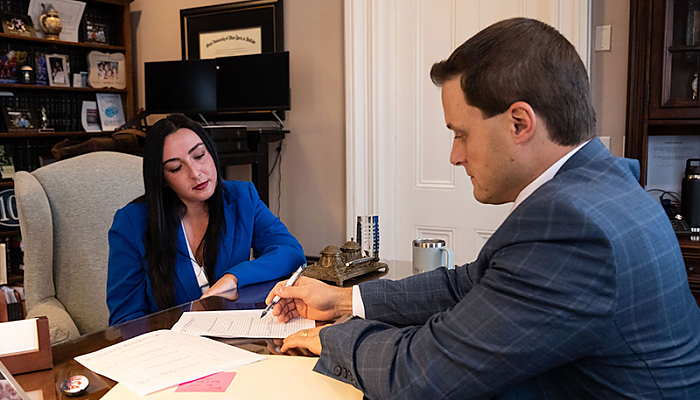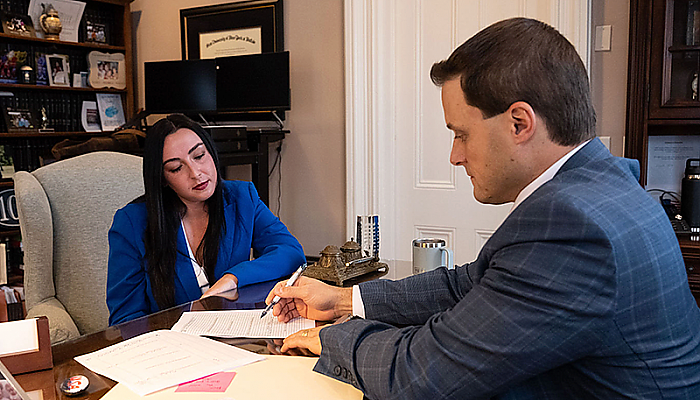What Are Common Mistakes to Avoid When Creating a Will?

Creating a will is one of the most important steps you can take to ensure your wishes are honored and your loved ones are taken care of after you pass away. However, many people make common mistakes during the will-writing process that can lead to complications down the line.
At Klafehn, Heise & Johnson P.L.L.C., we’re here to help you avoid these pitfalls and create a solid estate plan that reflects your intentions. Here are some common mistakes to avoid when creating a will in Rochester, Brockport, and the surrounding areas.
1. Not Consulting with a Legal Professional
Why Is Legal Guidance Important?
One of the most significant mistakes individuals make is attempting to create a will without professional legal assistance. While online templates and DIY resources may seem convenient, they often overlook specific state laws and requirements that could invalidate your will.
How Can Klafehn, Heise & Johnson P.L.L.C. Help?
Consulting with an experienced estate planning attorney can help you navigate the complexities of New York estate law. At Klafehn, Heise & Johnson P.L.L.C., our attorneys can ensure your will is valid and legally sound. Contact us today to learn more about how we can assist you.
2. Failing to Update Your Will Regularly
Why Should You Review Your Will?
Life circumstances change—marriages, divorces, births, and deaths can all impact your estate plan. Failing to update your will can lead to unintended consequences, such as leaving assets to someone who is no longer in your life or not including new family members.
When Should You Update Your Will?
It's recommended to review your will every few years or after any significant life events. If you need help making updates to your will, our team at Klafehn, Heise & Johnson P.L.L.C. can assist you in ensuring your estate plan reflects your current wishes.
3. Overlooking Digital Assets
What Are Digital Assets?
In today’s digital age, many people have online accounts, digital currencies, and other digital assets that need to be addressed in their estate planning. Failing to include these assets in your will can lead to confusion and disputes for your heirs.
How to Include Digital Assets in Your Will
When creating your will, consider listing your digital assets and providing instructions for accessing them. This may include social media accounts, online banking information, and digital files. Consult with our attorneys to ensure these important assets are included in your estate plan.
4. Being Vague About Your Wishes
Why Clarity Is Crucial
One of the most common mistakes is writing vague instructions regarding asset distribution. Ambiguity can lead to confusion and disputes among your beneficiaries, which can delay the probate process and cause emotional distress for your loved ones.
How to Provide Clear Instructions
Be as specific as possible when detailing your wishes. Clearly identify beneficiaries and specify what each person will receive. Our attorneys at Klafehn, Heise & Johnson P.L.L.C. can help you draft a comprehensive will that minimizes ambiguity.
5. Neglecting to Name an Executor
What Is the Role of an Executor?
Your will should designate an executor—someone you trust to carry out your wishes after your death. Neglecting to name an executor can lead to complications, as the court will have to appoint one, which may not align with your preferences.
Choosing the Right Executor
Consider someone responsible, trustworthy, and capable of handling financial matters. Discuss your choice with them in advance to ensure they are willing to take on this important role. If you need assistance in selecting an executor, reach out to Klafehn, Heise & Johnson P.L.L.C. for guidance.
6. Not Considering Tax Implications
How Can Taxes Affect Your Estate?
Another mistake is failing to consider the tax implications of your estate. Estate taxes can significantly reduce the amount your beneficiaries receive. Understanding these implications is essential for effective estate planning.
Seeking Professional Advice
Consulting with a legal professional can help you strategize ways to minimize tax liability and protect your assets. At Klafehn, Heise & Johnson P.L.L.C., we offer tailored advice to help you navigate these complexities. Contact us to learn more about tax-efficient estate planning.
7. Ignoring State-Specific Requirements
Why Local Laws Matter
Each state has its own laws governing wills and estate planning. Ignoring New York’s specific requirements, such as witness signatures and notarization of certain documents, can lead to your will being deemed invalid.
Ensuring Compliance with New York Law
An experienced estate planning attorney can help you navigate these state-specific requirements, ensuring that your will is valid and enforceable. At Klafehn, Heise & Johnson P.L.L.C., we can guide you through the legal landscape in New York to ensure your estate plan is compliant.
Take Control of Your Estate Planning Today
Creating a will is an essential step in protecting your assets and ensuring your loved ones are cared for after you’re gone. By avoiding these common mistakes, you can create a solid estate plan that reflects your wishes and provides peace of mind. If you're ready to start the estate planning process or need help reviewing your current will, contact Klafehn, Heise & Johnson P.L.L.C. today. Our dedicated team is here to provide personalized legal support tailored to your needs in Rochester, Brockport, and the surrounding areas.
Legal Disclaimer: This article provides general information about legal strategies and guidance for estate planning and probate law in New York State. It should not be construed as legal advice or a substitute for consulting with an attorney. Each individual’s situation is unique, and laws can vary from state to state. For specific legal advice and guidance tailored to your transactions and circumstances, consult with the attorneys at Klafehn, Heise & Johnson PLLC in Brockport, NY. You can contact us here. Portions of this account are considered ATTORNEY ADVERTISING under the New York State Unified Court System Rules of Professional Conduct (22 NYCRR Part 1200). Prior results do not guarantee a similar outcome.
‹ Back













